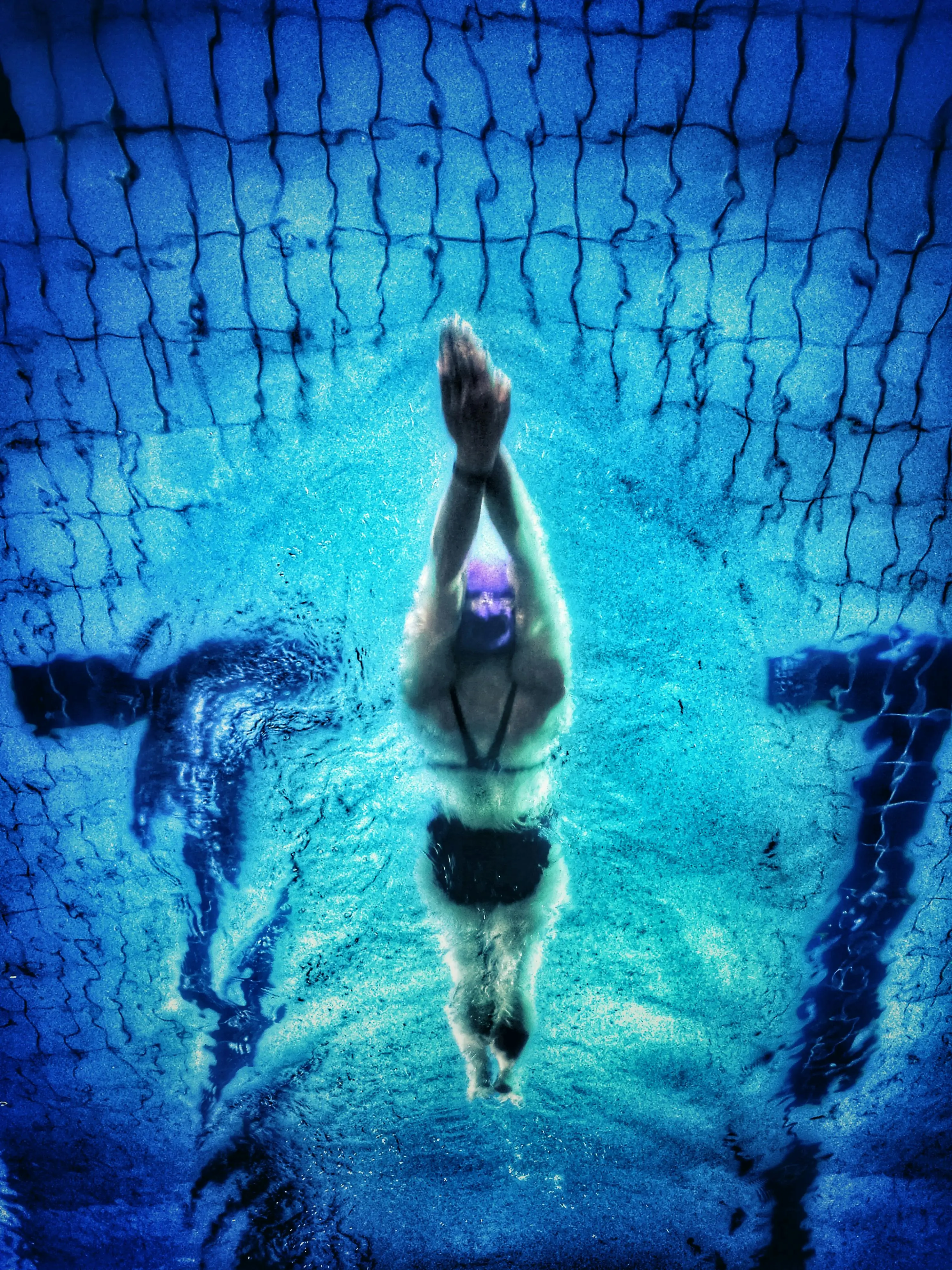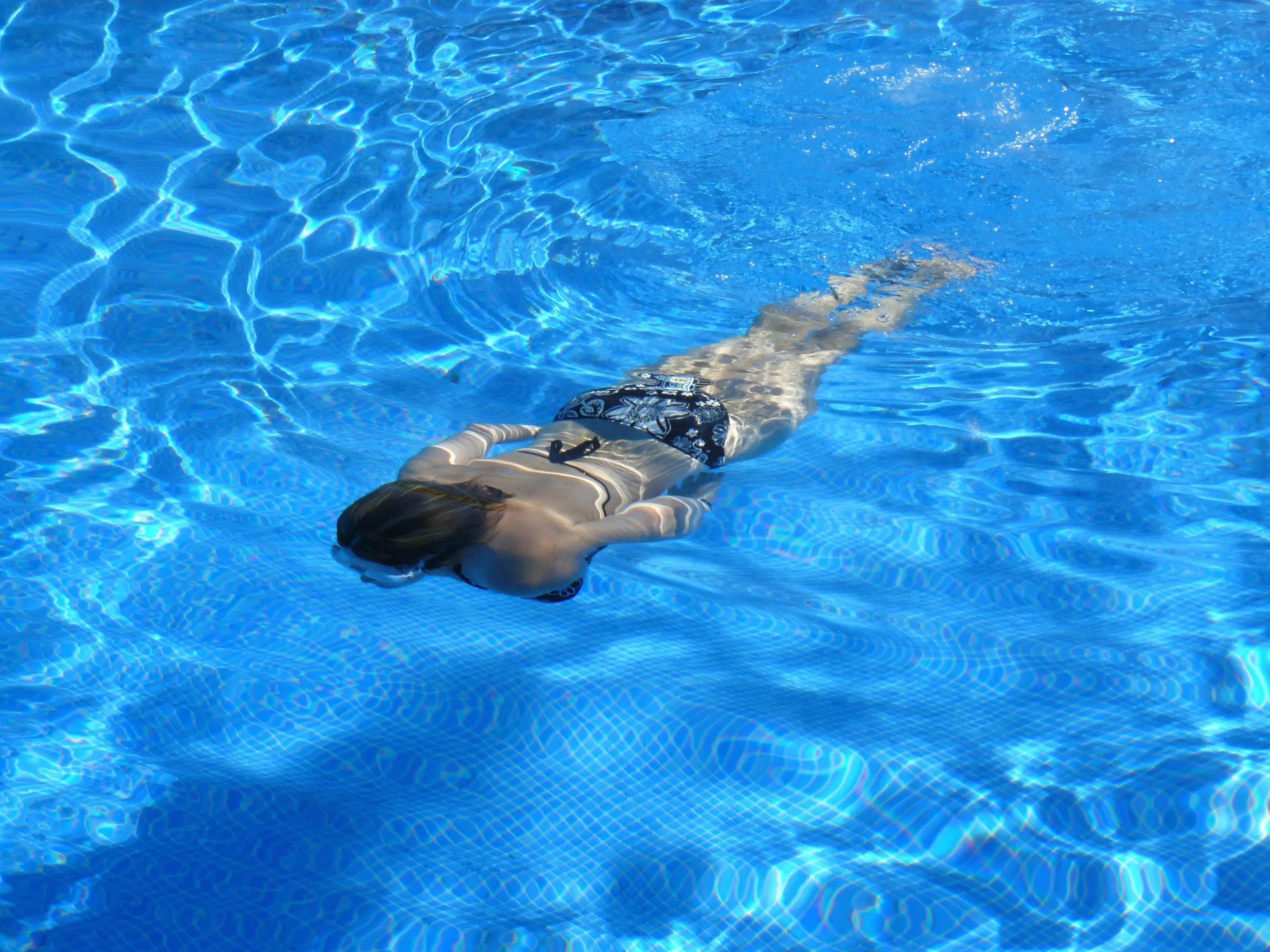When we dive into the water, everything changes: the body feels lighter, the breath finds its own rhythm, and thoughts come to rest. But while the outer world becomes quieter, the brain is running at full speed. The coordinated movement challenges the nervous system, activates neural networks, and initiates biochemical processes that not only enhance our physical performance but also strengthen the brain. Those who swim regularly not only train muscles and endurance – but also improve concentration, memory, and cognitive flexibility.
Swimming: The brain in sync mode
Whether running, cycling, or swimming – every movement is controlled by the brain. However, during swimming, the central nervous system faces special challenges: to move the body fluidly, both halves of the body must work perfectly coordinated and synchronized, unlike running or cycling. For this to happen, multiple brain areas must work together precisely. This exactly promotes neuroplasticity, the ability of the brain to form new connections and adapt to challenges.
A small messenger with a big impact
In addition, swimming is one of the aerobic sports, that is, endurance or cardio training. Large muscle groups are moved rhythmically over a longer period while the breathing and heart rate rise. This boosts circulation – also in the brain – and the body produces BDNF (Brain-Derived Neurotrophic Factor).
Behind it hides a tiny protein that neurobiologist and one of the leading experts in brain research, Martin Korte, calls "brain fertilizer". For good reason: the more BDNF we have, the better our logical and abstract thinking and our memory performance work. Plus: The growth factor not only protects existing nerve cells but also promotes the formation of new synapses.
Thus, the body is able to build up a kind of reserve of neuronal connections, which it can fall back on in bad times – for example, when some decay during the aging process. This in turn has another advantage: Researchers have found that swimming even has an influence on neurodegenerative diseases such as Alzheimer's. Although these cannot be cured by regular swimming sessions, the risk of developing them can be reduced and symptoms alleviated.



















_1500x2250_150_RGB-2.webp)